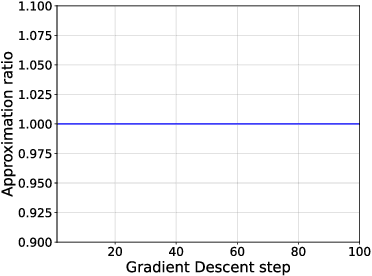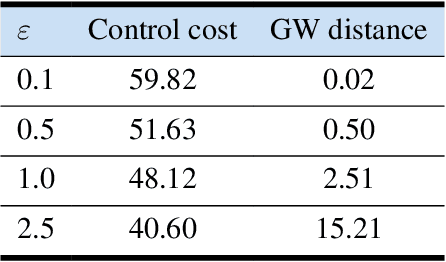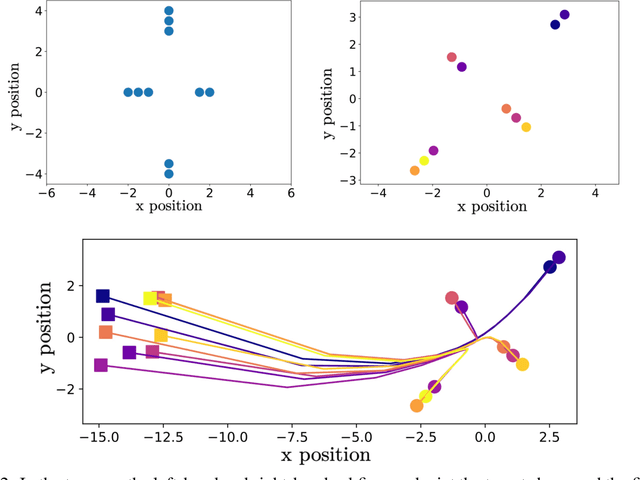Kohei Morimoto
Formation Shape Control using the Gromov-Wasserstein Metric
Mar 27, 2025



Abstract:This article introduces a formation shape control algorithm, in the optimal control framework, for steering an initial population of agents to a desired configuration via employing the Gromov-Wasserstein distance. The underlying dynamical system is assumed to be a constrained linear system and the objective function is a sum of quadratic control-dependent stage cost and a Gromov-Wasserstein terminal cost. The inclusion of the Gromov-Wasserstein cost transforms the resulting optimal control problem into a well-known NP-hard problem, making it both numerically demanding and difficult to solve with high accuracy. Towards that end, we employ a recent semi-definite relaxation-driven technique to tackle the Gromov-Wasserstein distance. A numerical example is provided to illustrate our results.
Continuous optimization by quantum adaptive distribution search
Nov 29, 2023Abstract:In this paper, we introduce the quantum adaptive distribution search (QuADS), a quantum continuous optimization algorithm that integrates Grover adaptive search (GAS) with the covariance matrix adaptation - evolution strategy (CMA-ES), a classical technique for continuous optimization. QuADS utilizes the quantum-based search capabilities of GAS and enhances them with the principles of CMA-ES for more efficient optimization. It employs a multivariate normal distribution for the initial state of the quantum search and repeatedly updates it throughout the optimization process. Our numerical experiments show that QuADS outperforms both GAS and CMA-ES. This is achieved through adaptive refinement of the initial state distribution rather than consistently using a uniform state, resulting in fewer oracle calls. This study presents an important step toward exploiting the potential of quantum computing for continuous optimization.
 Add to Chrome
Add to Chrome Add to Firefox
Add to Firefox Add to Edge
Add to Edge